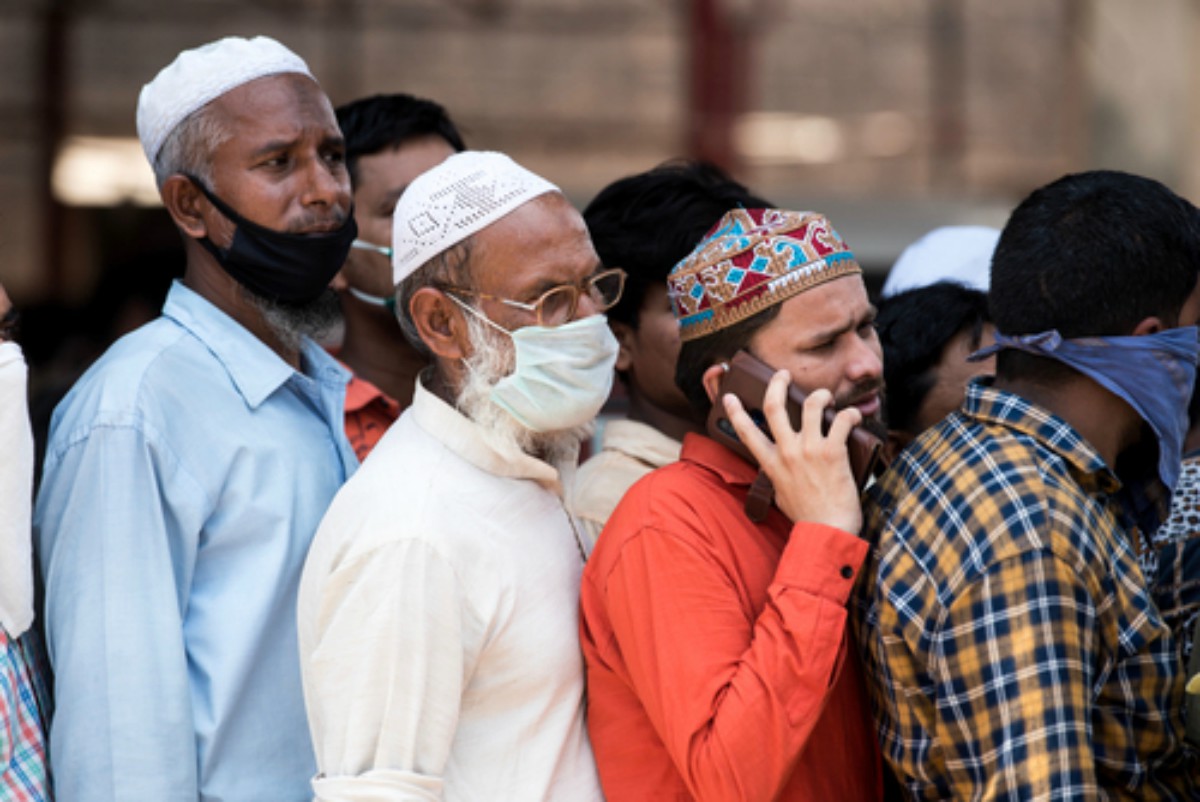India’s COVID-19 lockdown has severely hit the meat business in Mumbai, impacting thousands of people involved in the supply chain, from animal traders and slaughterhouse operators to butchers and sellers.
Almost all animal abattoirs in India practise, either officially or unofficially, halal slaughtering, and involve primarily Muslims.
In Mumbai, the slaughtering of buffalos and goats are officially allowed only at the government-run Deonar abattoir which has been shut since India first announced its three-week lockdown on March 24. This has now been extended to May 17.
But this slaughterhouse is completely shut as it falls within the containment zone, Deonar abattoir’s general manager Dr. Yogesh Shetye told Salaam Gateway.
“The area where the abattoir is located is a hotspot of coronavirus cases. It will remain closed till May 17 but this may be extended further depending upon the government order.”
He said over 3,000 sheep and goats are usually slaughtered every day in the Deonar abattoir. “When the government will issue a notification to open the slaughterhouse, we will immediately start operation.”
Meat traders say another reason why slaughterhouses are not able to function is that local mandis (weekly livestock markets in the heartlands) that supply animals are not operating due to the lockdown.
“Traders are also not able to bring livestock from outside Maharashtra. Generally, sheep and goats are brought from neighbouring states like Gujarat, Rajasthan, and Madhya Pradesh, as Maharashtra doesn’t have much local supply,” said Mohammad Qureshi, President of the Bombay Beef Dealers’ Association.
He said more than 300 to 350 buffalos are usually slaughtered every day at Deonar abattoir.
“Whatever little animals are available within the state, people are bringing and slaughtering but as result of that, prices of mutton and beef have gone up significantly,” said Qureshi.
Meat demand generally increases by 25-30% during Ramadan but the lockdown has crushed demand.
Industry players say they look forward to Ramadan when sales typically increase and they can cash in but everybody is now staring at massive losses.
Meat exports to China and other countries have also stopped due to the coronavirus, said Qureshi, who also supplies to exporters.
“Since exporters don’t know how long this lockdown will continue and when the export will start, they have started disposing of their stock to the local market. So, people are somehow getting some supply of meat but that is not enough to meet local demand.”
JOBLESS MEAT WORKERS
Qureshi said the lockdown is critically hurting business and industry workers.
“There could be more than 50,000 people working for the meat industry in Mumbai alone, and if you look at Maharashtra, it could be over 100,000 – all of whom are now jobless.”
He said the biggest concern is that most of these people are very poor and belong to the economically lowest sections of society.
“They are daily wage earners. Since the lockdown is continuing for so many days, they are in very bad condition.
“Thankfully, some relief activities and food distribution are being done by social and Muslim organisations. So, many of them are surviving on charity.”
“Since Ramadan is going on, many Muslims are donating their zakat and fitra money which are being used to help poor people. This is giving some relief to people but it’s not happening at the scale it is needed,” said Qureshi.
From a business point of view, meat traders say the loss could run into millions of rupees.
They have urged the government to consider easing restrictions for slaughterhouses so they can run at least for limited hours on alternative days or even once a week.
But for Deonar abattoir in Mumbai, that would not be possible at the moment considering it falls within a high-risk COVID-19 zone.
(Reporting by Syed Ameen Kader; Editing by Emmy Abdul Alim emmy.abdulalim@salaamgateway.com)
© SalaamGateway.com 2020 All Rights Reserved

